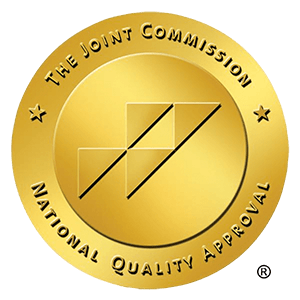FAQs About TMS
A: The best way to assess whether you are a good candidate for TMS therapy is by speaking to our TMS Coordinator and scheduling an evaluation with a psychiatric professional. Nevertheless, here are some characteristics of individuals who may be a good fit for TMS therapy:
- You are struggling with Major Depressive Disorder, Treatment Resistant Depression, or another neurological condition.
- You either:
- Tried other treatments (g., oral antidepressants) that have not treated your symptoms successfully.
- Are currently attempting other treatments—which have not treated your symptoms successfully.
- Are not able to tolerate oral anti-depressants because of the side effects that they cause.
- You do not actively use drugs or have certain preexisting disorders that make seizures more common.
A: As a general matter, if you have received (or are able to receive) an MRI, it will be safe for you to receive TMS. However, if you have any of the following characteristics, you should discuss them with your psychiatric provider before beginning TMS therapy:
- You have non-removable metal in your head, including:
- Stents in neck or brain
- Deep brain stimulators
- Electrodes in head
- Cochlear implants in ears
- Shrapnel or bullet fragments in or near the head
- Aneurysm clips/coils
- Facial tattoos with metallic or magnetic-sensitive ink
- (Braces and dental fillings should not preclude an individual from receiving TMS. Generally, if an individual would be cleared to receive an MRI, they should also be able to receive TMS).
- You have epilepsy or otherwise have a history of seizures
- You currently have substance use issues (g., alcohol or drug addiction).
- You have bipolar disorder, psychosis, or brain damage from illness or injury (g., brain tumor, stroke, traumatic brain injury).
- You are pregnant or nursing.
- You have frequent or severe headaches.
A: TMS is a safe and effective depression treatment that can be more effective than oral antidepressants and have fewer side effects than oral antidepressants. The procedure was approved by the Food & Drug Administration (“FDA”) for treating depression for over 15 years. However, the procedure is still relatively uncommon. This is probably because most TMS machines are expensive for psychiatric providers to purchase, and they require that the psychiatric provider undergo training to use and operate. Those barriers cause many psychiatric providers to limit their offerings to traditional psychiatric care (e.g., medication management), which is simpler than offering TMS therapy.
A: Patients typically receive 36 treatment sessions over the course of 7 weeks. From start to finish, the treatment process looks like this:
- You contact our TMS Coordinator. Our TMS Coordinator will answer your questions and obtain some basic information from you, to help determine whether TMS treatment may be appropriate for you, and to ensure that your treatment is covered by your insurance to limit or eliminate any out-of-pocket expense.
- Initial Psychiatric Assessment. You will have an initial appointment with one of our psychiatric professionals, who will perform a comprehensive assessment to learn about your background and treatment history.
- Initial TMS Appointment. After your psychiatric assessment, if you and your psychiatric provider determine that you are a candidate for TMS treatment, our TMS Coordinator will ensure that your insurance authorizes your treatment. Once your insurance has authorized the treatment, we will schedule the first TMS appointment. At that appointment, your psychiatric provider will initiate the treatment.
- Daily TMS Treatment Sessions. After your first TMS treatment session, you will attend daily sessions, Monday through Friday, for approximately 7 weeks. You will be able to drive yourself to and from treatment sessions, and sessions should last no more than 30 minutes each day. Throughout these treatment sessions, you will also have periodic follow-up appointments with your psychiatric provider to evaluate your progress and ensure that you are receiving the most possible benefit from your TMS treatment.
A: During a TMS treatment session, a magnetic pulse is delivered through a coil that is positioned over a region of the brain responsible for mood control. The pulses are delivered intermittently, typically over approximately 20 minutes. During your TMS session, you will sit comfortably in a chair in an upright position, and you will be accompanied by a TMS technician. During the treatment sessions, patients may choose to read, listen to music, watch television, or engage in conversation with their TMS technician.
A: Most patients report that they feel no pain associated with TMS. Rather, they describe the sensation of TMS as a light “tapping” against their head during the portions of the treatment sessions when the pulses are being delivered. A minority of patients report some discomfort at the site of the treatment and/or a headache, which typically goes away after the first or second week of treatment.
A: TMS is covered by all major insurances for treating depression, including Aetna, Blue Cross Blue Shield, Cigna (Evernorth), United Healthcare (Optum), Medicaid (AHCCCS), Medicare, and Tricare. At Core Recovery, we will verify your benefits before you receive treatment.
Studies also demonstrate that TMS can be an effective treatment for other conditions, including anxiety, obsessive compulsive disorder, smoking cessation, eating disorders, bipolar disorder, ADHD, and PTSD. However, insurance may not cover TMS for these treatments. In those instances, we offer payment plans and financing options for patients who may benefit from a form of TMS treatment that their insurances do not cover.
A: Yes. Give us a call or fill out this form and our TMS Coordinator will contact you shortly.
A: Currently, we offer TMS therapy at our location in Ahwatukee, Arizona, located at 16515 S. 40th St., Ste. 119, Phoenix, AZ 85048. If you live closer to our offices in North Phoenix, Arizona, or Surprise, Arizona, and are interested in receiving TMS treatment, please give us a call. We will be offering TMS therapy out of those locations by Summer 2024.


